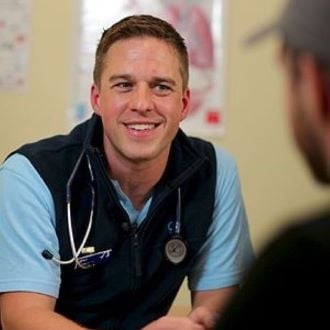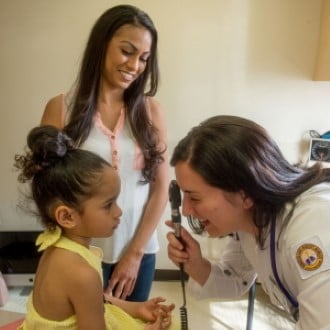About the Program
Program Learning Outcomes
Graduates of the Minnesota State University, Mankato DNP degree program will be able to:
 Evaluate scientific underpinnings that contribute to translation of nursing research to improve practice.
Evaluate scientific underpinnings that contribute to translation of nursing research to improve practice.- Evaluate advanced practice nursing actions that promote prevention and influence outcomes for individual, family, and population health.
- Use knowledge gained through evaluation of advanced practice nursing actions that influence health outcomes to lead improvement in health policy, care delivery, patient outcomes, and systems management.
- Evaluate and apply evidence pertaining to direct care of patients and management of care for individuals, families, systems, and populations.
- Translate evidence gained through evaluation of collaborative and direct care of patients and management of care for individuals, families, systems, and populations to improve practice and implement health policy.
- Use health care technology in the synthesis of evidence to design, implement, and evaluate change to address a clinical practice problem.
Curriculum

The DNP Program consists of two tracks: the BS-DNP/FNP track and the MSN-DNP track. The DNP/FNP track curriculum includes a DNP-FNP 80 credit plan including 1050 clinical practice hours. The MSN-DNP track curriculum is 27 credits; both structured around the American Association of Colleges of Nursing (AACN, 2021) Essentials. The semesters of doctoral didactic and clinical coursework include completion of an evidence-based DNP project (N741, N742 and N743). Throughout the course sequence, students will work with clinical experts and graduate faculty with expertise in applied research. A variety of teaching and learning approaches, primarily distance learning modalities, will be used. Our classes are hybrid classes, which means they are primarily online but meet face-to-face once per month at the Edina location. Upon completion of the BS-DNP program, graduates are eligible to sit for the national certification exam for primary care family nurse practitioner.
Advising
Students are assigned an academic advisor upon admission to the program. Guidance is provided for course scheduling and registration, as well as completion of the finalized plan of study.
Licensure disclosure
In compliance with U.S. Department of Education Regulation 34 CFR 668.14(b)(32)(ii), MSU is providing the following disclosures:
- The Doctor of Nursing Practice (DNP) Family Nurse Practitioner curriculum at MSU, meets educational requirements for advanced practice registered nursing (APRN) licensure in the following states, districts, and U.S. territories:
Arizona, Connecticut, Delaware, District of Columbia, Florida, Georgia, Guam, Hawaii, Idaho, Illinois, Indiana, Iowa, Kansas, Kentucky, Maine, Maryland, Massachusetts, Minnesota, Mississippi, Missouri, Montana, Nebraska, Nevada, New Hampshire, New Jersey, New Mexico, North Carolina, North Dakota, Ohio, Oklahoma, Oregon, Rhode Island, South Carolina, South Dakota, Tennessee, Washington, West Virginia, Wisconsin, Wyoming
- Due to state-level regulations, the DNP Family Nurse Practitioner curriculum at MSU, does not meet the educational requirements for APRN licensure or cannot verify meeting these requirements in the following states and territories:
Alabama, Alaska, American Samoa, Arkansas, California, Colorado, Louisiana, Michigan, New York, Northern Mariana Islands, Pennsylvania, Puerto Rico, Texas, Utah, Vermont, Virgin Islands, Virginia
This information was gathered from the National Council of State Boards of Nursing (NCSBN) website and the American Academy of Nurse Practitioners (AANP) website (last updated on June 26, 2024).
MSU assumes no liability or responsibility for any errors or omissions contained in this resource. It is your responsibility to verify the accuracy of this dynamic information.

